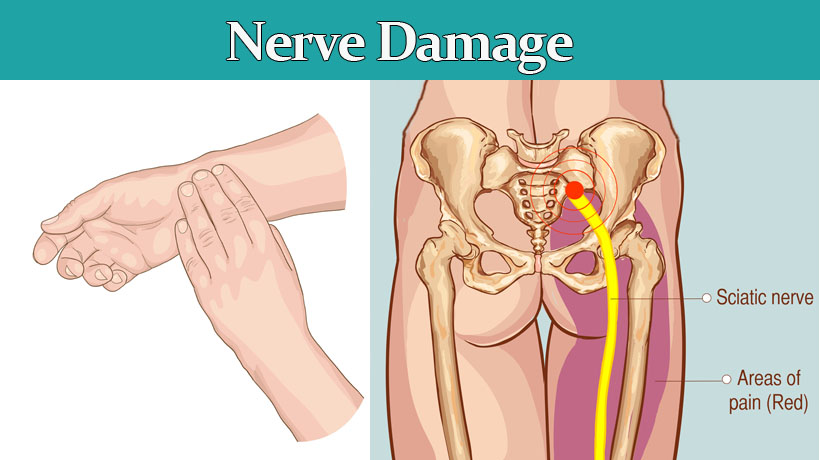There are billions of nerves in your body. You read that right: Billions.
Your peripheral nerves, which make up the majority of all your nerves, branch out all over your body and transmit messages back to your brain and spinal cord. When your nervous system is functioning correctly, the brain gets the info it needs to move your muscles, recognize pain, and aid proper internal organ function. But when peripheral nerves get damaged, a lot can go wrong.
An estimated 20 million Americans suffer from peripheral nerve damage, or neuropathy, according to the National Institute of Neurological Disorders and Stroke. The most common causes include diabetes, inherited anatomical defects, repetitive motion, Lyme disease, sudden trauma, aging, vitamin deficiencies, exposure to toxins, infections and autoimmune disorders. Meanwhile, about 30 to 40 percent of neuropathy cases are “idiopathic,” meaning that medical professionals cannot determine any known cause.
See a healthcare professional if you recognize any of the following symptoms in your own body.
Strange sensations
When you have peripheral nerve damage, numbness, tingling and burning sensations may radiate from your hands or feet into your arms or legs. In most cases, these sensations will be temporary; but if the ‘pins and needles’ feeling won’t go away, get it checked out.
Difficulty or inability to move
If motor nerves are affected, weakness or even paralysis can occur in the afflicted parts of the body. These same symptoms could also indicate that an underlying medical issue (think: stroke) needs urgent attention, so it’s best to head to the emergency room right away.
Pain running down one leg
A constant sharp pain, burning or tingling that begins in the lower back and travels down the backside of the leg could indicate sciatica. This condition occurs when the sciatic nerve becomes compressed or damaged, either by a herniated disk in the spine or by certain diseases, such as diabetes.
Increased clumsiness
Stumbling and falling a lot more than usual? When large nerves are damaged, you might experience a sudden lack of coordination or failure to sense the body’s positioning. Parkinson’s may also be a possibility, which occurs when the nerve cells in your brain are damaged.
Strong urge to urinate
In some cases, damaged nerves can cause problems in the bladder, making you feel like you have to urinate more than usual or creating trouble making it to the restroom in time. The risks increase after vaginal childbirth or developing conditions like diabetes.
Intense headaches
If you’re experiencing brief, intense headaches that feel like electric shocks, you may have an occipital neuralgia—a condition that stems from a pinched nerve in the neck. Visit a medical professional because you may need a nerve block, an injection that temporarily blocks the troublesome nerve from transmitting signals, to relieve the pain.
Unusual sweating
Uncharacteristic sweating mannerisms (both too much or too little) can be a sign that the nerves carrying information from your brain to your sweat glands have been damaged.
Lost feeling
Sensory nerves are supposed to send your brain signals about the many surfaces you come across, day-by-day. When damaged, these nerves might fail to warn you of dangerous surfaces, making you more prone to accidents. If you have burns, cuts, or other trauma because you failed to realize that you were touching something hot, sharp, or otherwise uncomfortable, see your doctor right away.
Sources:
https://www.prevention.com/health/g20486907/8-signs-you-might-have-nerve-damage/



